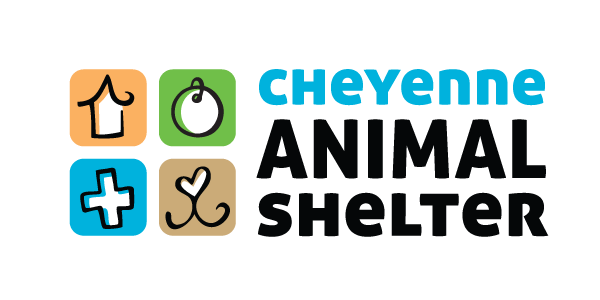Lost and Found: Why Pet ID Saves Lives
Written by: Britney Tennant, Cheyenne Animal Shelter CEO
When a lanky dog was dropped off at the Cheyenne Animal Shelter by local police one morning, he had no microchip, no name tag—just a collar with a worn rabies tag attached. That tiny tag launched a four-hour investigation that took us from Cheyenne to Greybull, through disconnected phone numbers and helpful vet clinic staff, before finally reuniting him with his relieved family.
His name was Boris.
This story had a happy ending, but not all of them do.
At the Cheyenne Animal Shelter, we reunite lost pets with their owners every day. While many people think of animal shelters primarily as adoption centers, we also serve a critical function as the safe harbor for the community’s lost and missing pets. In 2024 alone, more than 2,000 stray or lost animals found their way through our doors.
Petco Love Lost website
Our number one priority for any incoming animal is reunification—getting pets back home, safely and quickly. And while city ordinances require shelters to hold stray animals for three days before considering other options, we extend that window to five days when a pet has ID or a known owner. We believe that if there’s a chance to reconnect a family, it’s worth the extra time and effort.
But make no mistake: reunification takes work. Our staff comb through voicemails, search social media, trace rabies tags and microchips, post photos on our website, and use facial recognition software through Petco Love Lost to match found pets with missing ones. It’s a time-consuming, labor-intensive process—and often, the only thing standing between a quick reunion and a long stay at the shelter is whether the pet has current identification.
Consider this: Nationally, only about 10% of animals entering shelters are returned to their owners, according to Shelter Animals Count. That number is distressingly low, especially when we know that the majority of lost pets have some kind of relationship with a human caretaker. By contrast, the Cheyenne Animal Shelter had a 19% return-to-owner rate in 2024—nearly double the national average. We’re proud of that, but we know we can do better.
That’s where the community comes in.
If every pet wore a collar with a current ID tag, and if every pet was microchipped with up-to-date contact information, we could reunite more animals in hours—not days. In many cases, they wouldn’t even need to enter the shelter at all. A good Samaritan could call the number on the tag or bring the pet to a vet or shelter to scan for a chip and make a quick phone call.
Dr. Tessha Winsch and Vet Tech, Laura Woeber, implementing a microchip.
Boris’ story ended well. His family came to pick him up later that day, got him a new ID tag, and had a microchip implanted before they left. They won’t have to go through this again. But countless other families—and pets—aren’t so lucky.
Lost animals in our care receive far more than a safe place to stay. They are given medical exams, vaccines, treatment for minor injuries, meals, warm bedding, and regular walks. For dogs in stray holding areas—who aren’t yet eligible for group playtime—this can mean multiple one-on-one walks each day. All of this takes time, compassion, and resources.
We do charge reclaim and boarding fees, but they don’t come close to covering the actual cost of care. And because reunification is such a priority, our staff are empowered to reduce or even waive those fees when needed. We never want cost to stand in the way of getting a beloved pet back home. It’s thanks to donors and community support that we’re able to do this.
We ask our community to partner with us in one simple but powerful way: Keep ID on your pets.
Microchip your pet, and check the registration annually to ensure your contact information is current.
Always keep a collar and tag on your pet, even indoors. Emergencies happen.
Act quickly if your pet goes missing: call the shelter, search online, and file a lost report.
Every reunification is a small miracle and every time a pet goes home, we all win.
Let’s work together to keep more pets with the families who love them—and out of shelters altogether.



